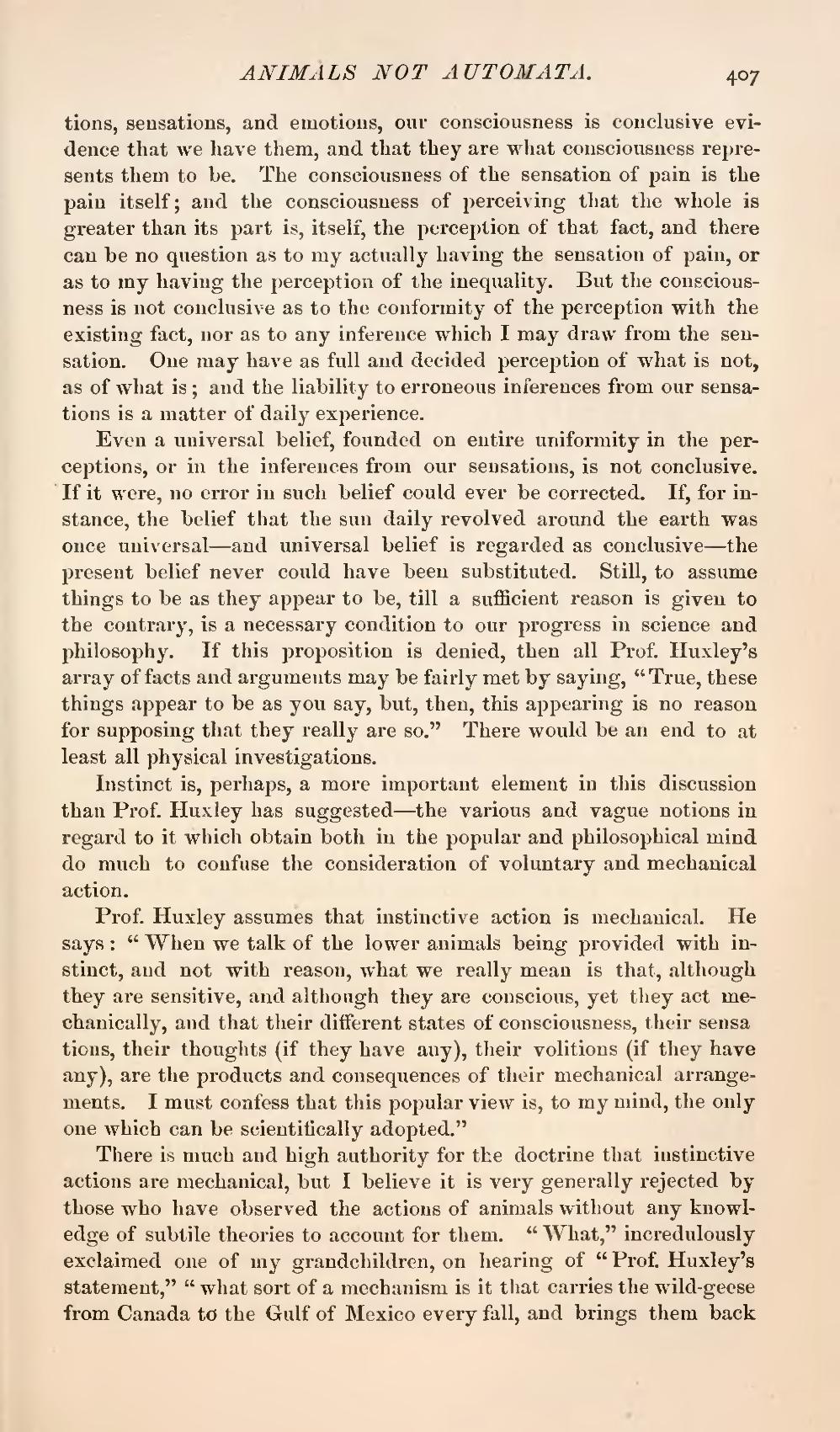tions, sensations, and emotions, our consciousness is conclusive evidence that we have them, and that they are what consciousness represents them to be. The consciousness of the sensation of pain is the pain itself; and the consciousness of perceiving that the whole is greater than its part is, itself, the perception of that fact, and there can be no question as to my actually having the sensation of pain, or as to my having the perception of the inequality. But the consciousness is not conclusive as to the conformity of the perception with the existing fact, nor as to any inference which I may draw from the sensation. One may have as full and decided perception of what is not, as of what is; and the liability to erroneous inferences from our sensations is a matter of daily experience.
Even a universal belief, founded on entire uniformity in the perceptions, or in the inferences from our sensations, is not conclusive. If it were, no error in such belief could ever be corrected. If, for instance, the belief that the sun daily revolved around the earth was once universal—and universal belief is regarded as conclusive—the present belief never could have been substituted. Still, to assume things to be as they appear to be, till a sufficient reason is given to the contrary, is a necessary condition to our progress in science and philosophy. If this proposition is denied, then all Prof. Huxley's array of facts and arguments may be fairly met by saying, "True, these things appear to be as you say, but, then, this appearing is no reason for supposing that they really are so." There would be an end to at least all physical investigations.
Instinct is, perhaps, a more important element in this discussion than Prof. Huxley has suggested—the various and vague notions in regard to it which obtain both in the popular and philosophical mind do much to confuse the consideration of voluntary and mechanical action.
Prof. Huxley assumes that instinctive action is mechanical. He says: "When we talk of the lower animals being provided with instinct, and not with reason, what we really mean is that, although they are sensitive, and although they are conscious, yet they act mechanically, and that their different states of consciousness, their sensations, their thoughts (if they have any), their volitions (if they have any), are the products and consequences of their mechanical arrangements. I must confess that this popular view is, to my mind, the only one which can be scientifically adopted."
There is much and high authority for the doctrine that instinctive actions are mechanical, but I believe it is very generally rejected by those who have observed the actions of animals without any knowledge of subtile theories to account for them. "What," incredulously exclaimed one of my grandchildren, on hearing of "Prof. Huxley's statement," "what sort of a mechanism is it that carries the wild-geese from Canada to the Gulf of Mexico every fall, and brings them back
